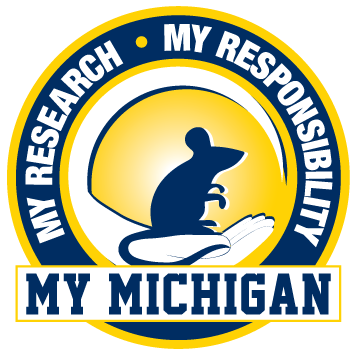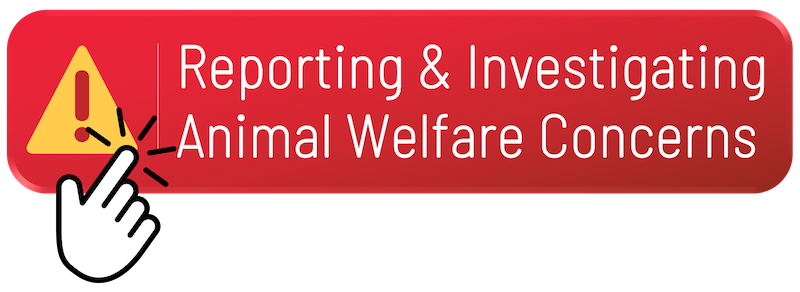Ensuring animal welfare and maintaining programmatic compliance is a shared responsibility, and the university depends on everyone to do their part.
As the new academic year rapidly approaches and we welcome new faculty, students, and staff to campus, we ask that all individuals whose work involves animals review – and be familiar with – the methods for reporting and investigating animal welfare concerns.
Any member of the U-M community having reason to question the treatment of animals at the university should report suspected cases of animal abuse, misuse, or mistreatment. There are a variety of ways that concerns may be reported. Individuals may choose to remain anonymous when reporting, and all reports are protected from discrimination or reprisal.

Bookmark the What You Should Know About Reporting and Investigating Animal Welfare Concerns Quick Reference Sheet for additional information about:
- The myriad ways suspected incidents of noncompliance can be reported,
- How allegations and reports are assessed within the program,
- Details about the inquiry/investigation process, and
- The protections in place to protect the identity of anyone making an anonymous report.
When a concern is reported, immediate steps are taken to ensure the welfare of any animal or human associated with the allegation.
The Animal Care & Use Office, acting on behalf of the Institutional Animal Care & Use Committee (IACUC), will then initiate an assessment of the allegation or report in accordance with the procedures outlined by the Policy on Investigating Noncompliance and Animal Welfare Concerns.
The cornerstone of this policy is a three-step corrective action process pertaining to the investigation – and confirmation of – noncompliance and animal welfare concerns reported within the U-M community. This process has been summarized in the Helpful Information Sheet: Policy on Noncompliance & Reporting Animal Welfare Concerns.
The IACUC is kept apprised of all investigations and their outcomes, and may make additional recommendations as the situation warrants.
Actions taken by the IACUC to minimize occurrences of noncompliance will be based on the seriousness of the incident and/or the number of incidents that occur on all protocols under the direction of an individual Principal Investigator.

For more information about the Animal Care & Use Program’s processes for investigating and addressing reported incidents of noncompliance, please review the following resources:

Remember, safeguarding animal welfare is the responsibility of every individual associated with our Program.
Thank you for taking an active role in promoting a culture of shared responsibility for compassionate and humane animal care at the University of Michigan.
Questions?
Questions or concerns about reporting animal welfare concerns should be directed to the Animal Care & Use Office at [email protected] or (734) 763-8028.
